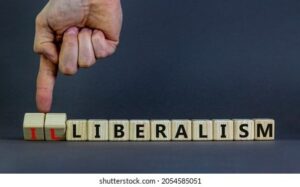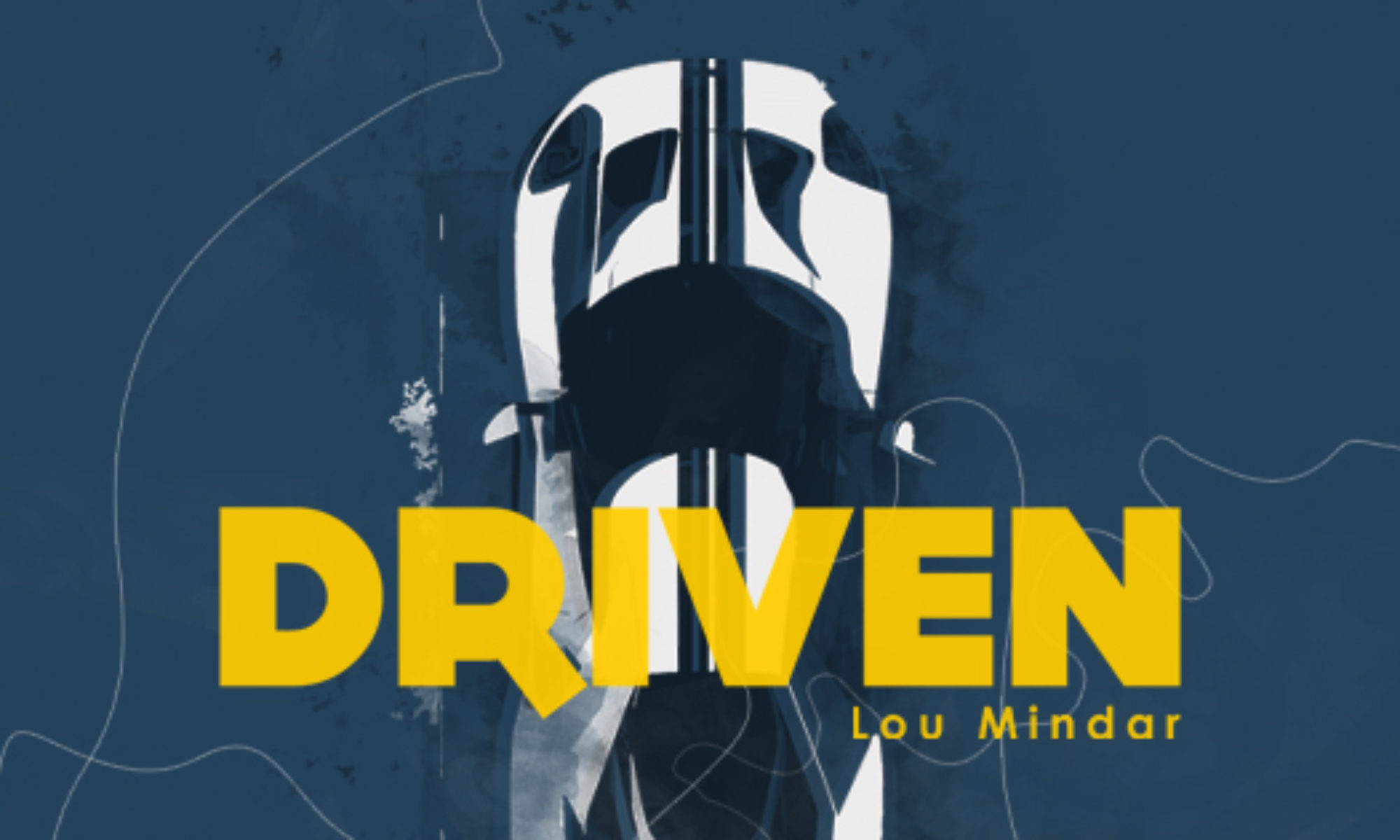 Earlier this year, I made the decision to stop writing about Donald Trump and the state of our nation, and instead focus on other writing projects. It was not a decision I came to easily. To me, turning away from the chaos, divisiveness, vitriol, and cruelty that is the Donald Trump presidency does nothing to defeat the authoritarian impulses of the president, instead giving him and his administration tacit permission to get away with their efforts to take our country down a dark, un-American path. Even so, resistance can turn into a full-time job, and it can be debilitating to one’s mental health. I needed a break, and I needed time to do other things.
Earlier this year, I made the decision to stop writing about Donald Trump and the state of our nation, and instead focus on other writing projects. It was not a decision I came to easily. To me, turning away from the chaos, divisiveness, vitriol, and cruelty that is the Donald Trump presidency does nothing to defeat the authoritarian impulses of the president, instead giving him and his administration tacit permission to get away with their efforts to take our country down a dark, un-American path. Even so, resistance can turn into a full-time job, and it can be debilitating to one’s mental health. I needed a break, and I needed time to do other things.
Recently, I’ve felt the pull again to write about the state of our nation and to fight back against the anti-democratic impulses of the administration. But I didn’t want to just jump back into the fray by complaining about Trump and the issue of the day. I wanted to look at our current situation through a wider lens, to better understand what is happening in our nation and the world from a more historical perspective. True, the United States has never seen a character like Donald Trump, hellbent on ending the Great American Experiment while simultaneously enriching himself and his friends, but I think a lot can be learned by looking at the bigger picture and drawing lessons and inspiration from it.
As I widened the lens, I came to two basic conclusions about myself that Id like to share. These facts about me drive the way I view our government, our country, and the wider world, and I think it’s important to understand them (at least it is for me) when reading anything I write that has to do with our current political situation.
First, I am always surprised when someone calls me a Democrat or a liberal. For my entire adult life, I have been a registered Republican, and until 2016, I always voted a straight Republican ticket. I’ve told this story before, but when I came of age politically in 1980, it was the Republicans who had a vision for our country that appealed to me. Republicans were the party of ideas. They saw the nation as a shining city on a hill, not a country caught in the malaise of the 1970s. I had mixed emotions about what the party stood for at that time, but from my perspective, the Democratic Party didn’t stand for anything meaningful.
In the following years, I worked on several different political campaigns for Republicans, I was trained to be a campaign manager by a Republican-affiliated consulting firm, and I became the legislative coordinator for one of the largest corporations in the country. Everything I did from a political perspective was done with a Republican bent to it.
That’s why it seems so odd to me that people would call me a liberal. In our current political environment, “liberal” and “conservative” have completely lost all meaning. What Donald Trump and the Republicans are currently doing has almost no resemblance to true conservative doctrine, yet they refer to themselves as “conservatives.” Even more strange, the farther right a person moves—farther away from conservative doctrine—they claim to be even more conservative. It makes no sense.
But rather than simply dismiss charges that I am a liberal, I decided to do some soul searching to see if there is any truth to what people who disagree with me are saying. And what I found was, I am a liberal. But it may not be what you think.
In political discourse, when we hear “liberal,” we normally think about the word in contrast to “conservative.” As I said, these terms have been rendered meaningless. The type of “liberal” I am is the type that is the opposite of “illiberal.” Some people refer to this type of liberalism as classical liberalism. So, what do classic liberals stand for?
There are five basic tenets of classical liberalism. They are:
Individualism: The individual is the basic unit of society. Liberalism believes in the autonomy, worth, and responsibility of the individual.
Limited Government: The power of the government should be constrained to prevent it from infringing on the rights of the individual. However, that does not mean we should have a weak government, or no government at all. I view the role of government the same way Lincoln did: that government should do for the people that which they cannot do for themselves or which the government is better positioned to do.
Rule of Law: This is a big one for me. The rule of law means that all individuals, including members of the government, are bound by the law and are held accountable to it. In this way, civil liberties are protected and upheld through a free, fair, and transparent legal system.
Natural Rights: These are rights that are inherent to human beings, and are neither granted by the government, nor can they be taken away by the government. These “rights” are usually listed as the right to life, liberty, and property.
Economic Freedom: Economic freedom involves a free market with limited government involvement, such as through regulation, taxation, or trade restrictions. Again, this doesn’t mean no regulation, taxation, or trade restrictions. It means only enough government involvement to make sure that markets operate efficiently and fairly.
These are the things I believe in. In order to completely understand what classical liberalism stands for, I think it is instructive to consider what the phenomenon of illiberalism favors.
Centralization of Power: Illiberaliam prefers power to be held in one person or a small group of people, usually in the executive branch of the government. Often, this involves a charismatic “strongman” leader like Mussolini in Italy. Consolidation of power in the executive means the legislature and judiciary are weakened, often to the point where they are completely ineffective except as a rubber stamp for the executive.
Majoritarianism: The majority rules, and the minority loses rights and protections. Minority dissent is often dealt with harshly through violence in the name of national security and unity.
Erosion of the Rule of Law: Individuals do not stand equal before the law. Laws are enforced selectively, and often more severely against the ruling party’s opposition. The government often plays favorites, punishing actions taken by the opposition, while praising the same actions taken by the ruling party. This is a classic double standard.
Emphasis on Collective Identity: There is less emphasis on the individual and more emphasis on cultural, ethnic, or religious homogeneity. A person’s skin color, gender, sexual preference, ethnicity or religion counts for more than individual rights. Those who do not look the right way, act the right way, or worship the right way are often scapegoated and labeled “enemies of the state.” This is what happened to Jews, Roma, gays, and others in Nazi Germany.
Suppression of Opposition: Illiberal regimes often use the law and politics to repress the political opposition, academics, the media, and civil institutions in an effort to weaken and delegitimize them. Illiberals will use terms to describe these groups, such as “radical,” or “fake,” and will wrongly refer to them as “socialists,” “communists,” or “invaders.”
Restriction of Freedoms: Rights and freedoms once guaranteed are restricted by the government. These can include the freedoms of speech, press, religion, and assembly, especially when these rights are used to criticize the government. This is often accomplished through surveillance, censorship, and legal intimidation.
With this in mind, then yes, I am a liberal. But honestly, being a liberal in the United States for most of our country’s history and for the entirety of my life up until 2016 was not that difficult or unusual. It was the default position for the vast majority of Americans, or so we thought.
When Donald Trump came on the political scene, illiberals started crawling out of the woodwork. These are people who want a strongman to lead the nation, and they want law (or at least enforcement of laws) to favor them. In other words, they want special treatment for white Christians, especially men. And they want the government to clamp down on anyone that doesn’t look like them, act like them, love like them, or worship like them. Trump became their savior, the man (the only man) who could right the wrongs they felt had been done to them and would spite those they viewed as enemies (i.e. anyone not like them). Although they usurped the words, they had no interest in true freedom, patriotism, or law and order. They had no use for experts, history, or anyone or anything that could hold a mirror up to their illiberalism and call it what it really is. And that’s how we find ourselves in our current mess, marching toward economic collapse and on the verge of full blown authoritarianism.
This leads to the second realization I had about myself. Unlike a lot of people, I don’t view political parties like sports teams. I think I did at one time, but I haven’t for years. Cheering or booing for the flavor of the month doesn’t interest me. Instead, I’m invested in the big picture, the long-term. My eyes are on things like the Constitution, the rule of law, and democracy. I’m much less concerned about whether a candidate has an “R” or a “D” behind their name than I am about their commitment to our democracy, allegiance to the Constitution, and adherence to the rule of law.
I hope that someday, as a nation, we can get back to arguing about tax rates or environmental policy or immigration reform. But for now, the nation is in a fight for its soul. We have a president who wants to do away with birthright citizenship; is deporting immigrants—both legal and illegal—without due process; is using the Department of Justice to go after his enemies while ignoring legitimate crimes, including those involving members of his administration; has deployed the military to the streets of American cities, is threatening martial law, and recently spoke to military leaders, telling them they could use Democratically-controlled urban areas as “training grounds” for their troops. Now is not the time to major in the minors.
As you read my thoughts in the future, keep in mind that these two facts underlie my political beliefs: I am a classic liberal and I don’t root for political parties, I root for our democracy. And by pointing this out, I hope I can get people to consider stepping away from their party-first way of thinking and instead put the good of the nation ahead of their partisan allegiance. Maybe someday we can be Democrats and Republicans again, but for now, the only decisions we have to make are whether or not we are Americans and what are we are going to do to save our nation.
